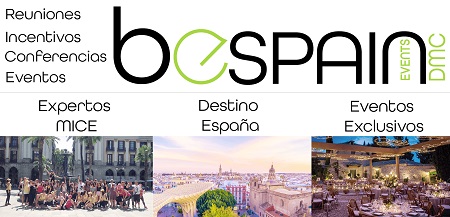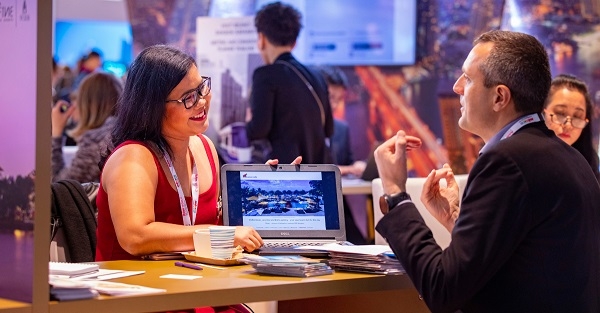
Gian Power is an ex-Deutsche Bank and PwC employee who, following a personal tragedy in 2015, realised that storytelling had the power to transform workplaces. Gian went on to found TLC Lions which today supports over 200 multinationals in over 100 countries. Gian’s work has been recognised in Forbes and Business Insider, and in 2019 Gian was the winner of the NatWest Great British Entrepreneur Awards. Today, Gian also sits on the board of This Can Happen and is an ambassador for the Missing People charity.
Gian will explore how to make workplaces more emotionally inviting in his talk at IBTM World Barcelona, taking place from 30 November to 2 December.
How do you feel people management and leadership need to change to better reflect our new reality post-pandemic?
Pandemic or not, the old way of controlling people and dictating how we work has changed, and it also demands a change in leadership. People often talk about people being their biggest asset, but they often don’t treat them like they are. A quote I like is: “People are human beings, not human doings,” in other words, people are trying to live, not just do. Life happens. Things get in the way, and it’s important that leaders show they understand that. It’s not just a nice to have either, where leaders genuinely care, employees work much harder for them.
Do you feel there has been a shift lately in how people expect workplaces to be?
Yes, from a few angles. In terms of attracting and retaining talent, there has been lots of focus on inclusion and diversity which is great, but I’ve been on so many programmes which claim to be diverse, but they’re not. We’ve got to make sure we’re living and breathing those values.
In addition, people no longer want a job for life; nowadays people are more interested in purpose over pay check. People want meaningful jobs and if they don’t get that they’ll go to somewhere that does offer what they need. This is shaking up lots of different industries.
You talk about empathy not being a soft skill, what do you mean by this?
Empathy is often seen as soft and fluffy and not something that can be managed, but a report by Catalyst in the US called ‘The Power of Empathy in Times of Crisis and Beyond’, talks about empathy as a business imperative. Their research into empathy found that when a senior leader shows empathy it increases a team’s ability to innovate by 61 per cent and engagement by 76 per cent. Empathy is not just about listening to someone; it’s about actually how can we live in their shoes. Empathy is a power skill, but it’s also a muscle that we can all train, and the way we can train it is by using the power of storytelling.
You say listening is an underrated skill, how can this skill contribute to a better workplace and relationships?
Human beings are natural problem solvers, and therefore people listen to respond rather than to understand. Listening is crucial to storytelling because if everyone is talking and no one is listening, it won’t work. Research has shown that we spend about 60 per cent of our communication time listening, but as humans we only retain around 25 per cent of information. In addition, only two per cent of corporate companies are investing in listening as a skill, and this has got to change.
How easy was it for you to start to develop these skills in your own life or is this something you’ve always been good at?
I’ve always liked human interaction, but I didn’t know a lot about these skills to start with. It’s taken me time and practice. Even listening, I have to practice this daily to make it a habit. Meditation has helped as it trains the mind to really pause. Something I find really useful is meditation before a big business meeting to provide extra clarity. If you’re hosting a 60-minute meeting, spend first five minutes meditating. It will relax everyone, so the louder ones are calmer and the quieter ones will have more of a voice.
How has implementing these skills changed your life?
I’ve got to know myself a bit more, my triggers, and what works for me. It’s also helped with my leadership style, so when I have feedback meetings, I really listen. I want to know how they’re feeling. It can be so powerful. In my personal life, with all my relationships, I’m much more present and communicative. Communication is so key and yet it’s so often overlooked.
Do you have any quick tips for how we can start to implement some of these ideas into our own lives?
- Practice active listening. Next time you’re in a meeting, tune in, look at body language, don’t interrupt and don’t judge.
- Use the power of meditation to be at one with who you’re with and to help regulate how you’re feeling
- Try emotions tracking. Tune in to how you’re feeling and name the emotion. You can write it down if it helps.
Gian is due to speak at IBTM World Barcelona on Wednesday 1 December at 09:00









